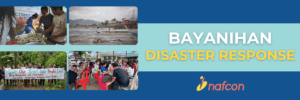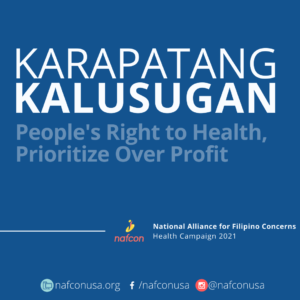August 13, 2023
Context & History
The town of Lahaina in Maui County, Hawaiʻi is a place rich with Native Hawaiian history and culture. It was once the capital of the Kingdom of Hawai‘i under King Kamehameha I. The streets of Lahaina reflect Hawaii’s past, including its royalty, whaling, pineapple plantations, and tourism. Over time, large sugar cane plantations, controlled by major corporations known as the “Big Five,” harmed the once-rich wetlands of Hawai‘i. These plantations relied on the labor of Native Hawaiians and people from Japan, the Philippines, China, and Portugal. More than 1/3 of Lahaina’s population is Filipino. Due to its tropical climate Hawai‘i, like the Philippines, is susceptible to natural calamities due to climate change. This includes strong winds, droughts, and low humidity, which all contributed to the wildfire.
Prioritization of Water for Hotels and Golf Courses Worsened Impact
As of August 12, the current death toll is up to 80 but officials expect it to rise as rescue teams make their way to further assess the situation. Over 1,400 people are in shelters and over 2,000 structures have been damaged by the fires. This incident is considered to be one of the largest natural disasters in Hawai’i’s history, particularly affecting Native Hawaiians and immigrants, which include a significant number of Filipino workers who constitute the majority of Maui’s workforce.
Residents of Lahaina shared that they were not warned of the wildfires in a timely manner. Evacuation left them uncertain, with no clear guidance on where to turn next, often seeking refuge in churches and shelters outside of Lahaina.
A natural calamity such as typhoons and wildfires turn to disasters when human actions, like redirecting water for golf courses and hotels, and government negligence worsen impact. Officials were warned about the fire risk years ago, yet failed to create adequate plans and foresee the danger. The state’s emergency alert system also didn’t adequately notify people about the upcoming calamity which has caused disastrous impact on so many families.
The aftermath is marked by power outages in West Maui, intensifying the difficulty of communication, which is crucial for effective aid distribution and reuniting affected families.
Bayanihan Disaster Response and Calls for Donations
NAFCON is committed to provide support for community members, workers, and their families impacted by the wildfires. We will work together to campaign for Bayanihan Disaster Response efforts which encourage initial action towards relief, continuous action and education towards early rehabilitation, and combine this with mobilization and advocacy efforts which are hinged on community-led and sustained response searching for more comprehensive support.
Time and time again in the face of disaster, community members have come together for efforts to support one another. The rehabilitation of Lahaina will continue for years to come, but through our collective efforts, we hope to advocate for a people-oriented approach in rebuilding the community and the lives of those affected.
NAFCON is partnering with Hawai’i Workers Center to support workers and their families impacted by the fire. The donation will go towards relief and comprehensive rehabilitation support for those directly impacted.
Donate at hawaiiworkerscenter.org/donate. Make a note “Maui fires” in the donation.
Additionally, NAFCON supports Hawaii Workers Center’s demands that Unemployment Insurance (UI) should be made accessible and paid out quickly to claimants. UI should activate its crisis response system now, and workers should receive their UI benefits within 30 days of the date of application and at least 60 day grace period for those affected who may not have all the documentation needed because they or their employers records were destroyed or lost. We also support the demands that the Emergency Proclamation be extended to provide longer protection from the state as rebuilding is happening and that both short-term housing policy moratorium and long-term affordable housing needs be addressed. Lastly, NAFCON calls for the Philippine Consulate General in Honolulu to give assistance to the Filipino community who made up over a third of Lahaina’s population and were severely affected.
##



